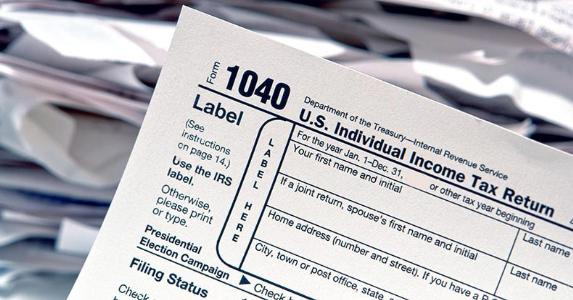
Itemized vs. Standard Deductions – 2017 and Prior Filing Years
When filing Form 1040 each year, individual taxpayers have the ability to reduce their taxable income by claiming itemized deductions on their tax return or taking the simpler method, the standard deduction. For the 2017 tax year the standard deduction for an individual or married couple filing separate is $6,350. For married couples filing jointly the 2017 standard deduction is $12,700. For taxpayers age 65 or older there is an additional amount tacked onto the standard deduction – $1,550 if filing single and $1,250 if married filing joint or separately. For example, a married couple in their seventies would get a 2017 standard deduction of $15,200 ($12,700 Standard Deduction + $1,250 per spouse).
Taxpayers will utilize the standard deduction when the amount exceeds their itemized deductions.
Itemized Deductions include, but are not limited to, the following:
- Medical and Dental Expenses – Out-of-pocket medical expenses that are in excess of 7.5% of the taxpayer’s Adjusted Gross Income (AGI)
- Taxes Paid – include State & local income taxes (or general sales taxes) and Real estate taxes
- Interest Paid – on a personal home mortgage, home equity line of credit, investment interest
- Gifts to Charity
- Casualty and Theft Losses
- Job Expenses and Certain Miscellaneous Deductions (which exceed 2% of AGI) – include union & professional dues, tax preparation fees, investment fees, unreimbursed employee expenses
Itemized deductions do begin to phase out once AGI exceeds $261,500 for a single filer or $313,800 for joint filers.
In addition to either of the above deductions, a personal exemption may be claimed for the taxpayer and any dependents claimed on his or her return. The 2017 exemption amount is $4,050. The personal exemption(s) phase out when AGI exceeds $309,000 for 2017 joint tax returns and $258,250 for 2017 single tax returns.
Changes to Deductions under the 2018 Tax Cuts and Jobs Bill
It is likely that there will be a tremendous upswing in taxpayers claiming the Standard Deduction on their tax returns for the 2018 tax year. The recently passed Tax Cuts and Jobs Bill increases the 2018 Standard Deduction to $12,000 for single filers, $18,000 for heads of household, and $24,000 for joint filers. The bill also eliminates the personal exemption. On a 2017 income tax return – a couple in their seventies would receive a Standard Deduction of $15,200 plus 2 personal exemptions of $4,050 for a total of $23,300 in deductions. In 2018 that same couple will simply get a $24,000 Standard Deduction, an additional $700 in deductions.
One key change includes Taxes Paid – starting for tax year 2018, taxpayers can only claim up to a combined $10,000 of taxes paid, including state and local taxes (or sales taxes) and real estate taxes. This will have an effect on high income individuals and those living in areas with high real estate tax rates.
The Act also limits the Mortgage Interest Deduction to the first $750,000 in principal value (was $1 million) prior to 2018. There are no changes to the charitable deduction.
Let’s look an example to show the effects of the new legislation:
A married couple has two children. Each spouse is an employee and earns $60,000 and has $3,000 of state and local income taxes withheld. The couple pays $5,000 in real estate taxes and $7,000 in mortgage interest. They also give $2,000 to charity.
On their 2017 tax return they would itemize their deductions – total would be $20,000 – $11,000 in taxes plus $7,000 of mortgage interest, plus $2,000 of charitable contributions. On top of the $20,000 the taxpayers would get four personal exemptions of $4,050 per person. Total deductions for 2017 would equal $36,200.
Under new legislation: total itemized deductions would total only $19,000 (as $1,000 of taxes would be disallowed) so the taxpayers will take the Standard Deduction of $24,000. And now that the personal exemptions are eliminated, this couple’s income will increase by $12,200! Fortunately, Congress also lowered individual income tax rates under the Act, which should lighten the burden.
As you can see, the new tax bill can have a big impact on 2018 taxes. Please contact anyone in the CK Tax Department should you have any questions or concerns on these 2018 changes.
